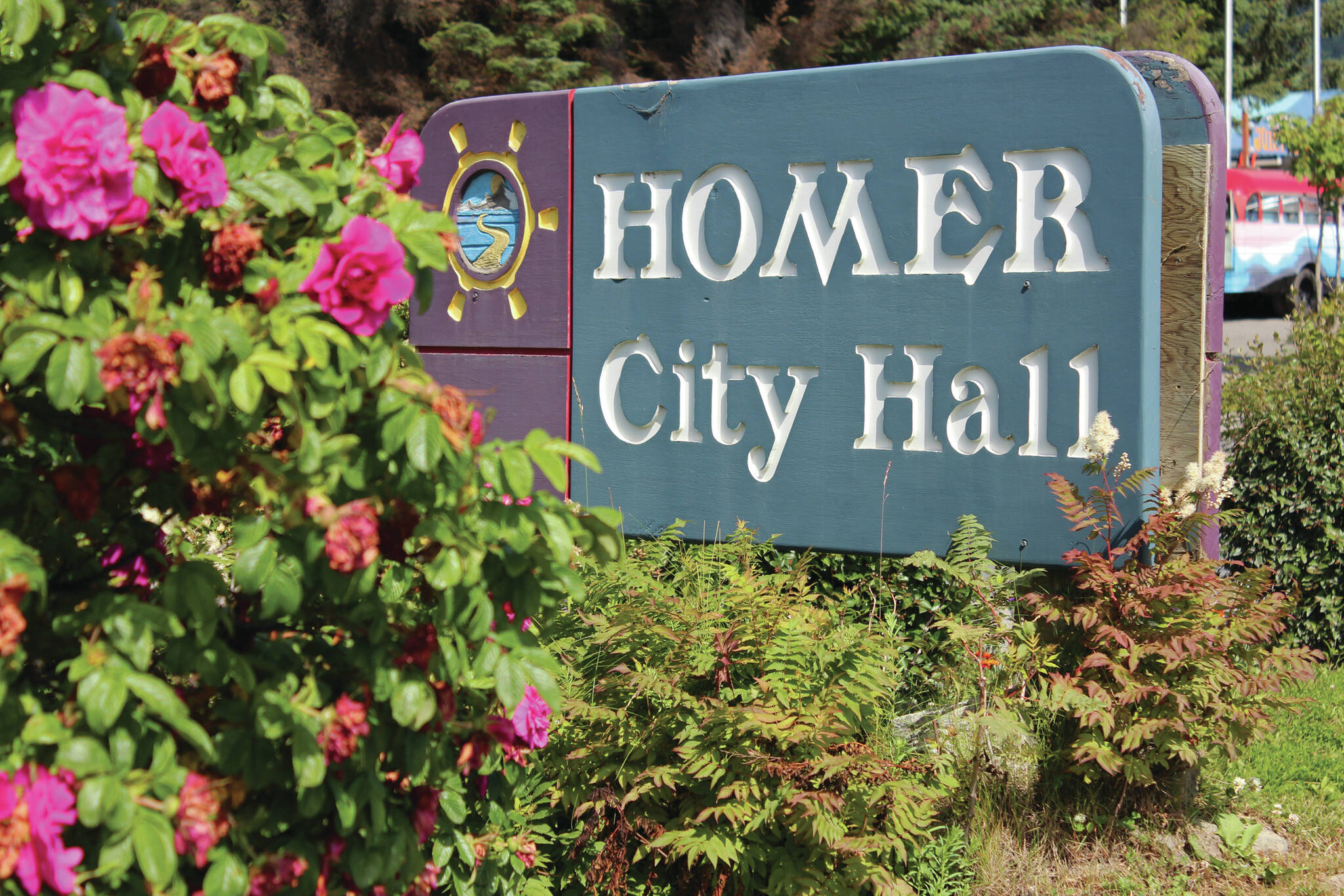A resolution supporting a proposal by the Kenai Peninsula Borough Assembly to place on the October ballot a boroughwide bed tax of up to 12% was unanimously voted down by the Homer City Council at a special meeting on Monday, June 17.
According to Resolution 24-074, 49 cities and boroughs in the state of Alaska currently have instituted a bed tax, with rates ranging between 4-12%. Of the five most populated Alaska cities and boroughs — which include Anchorage, Matanuska-Susitna, Fairbanks North Star, Juneau and the Kenai Peninsula — only the Kenai Peninsula Borough is “without additional sales tax on short-term accommodations.”
Both the Homer resolution and the KPB Assembly Resolution 2024-029 were brought forth in response to the “several hundred thousand” visitors traveling annually to the Kenai Peninsula who “place a large demand on public services offered within the borough.” According to Resolution 24-074, the revenue from the bed tax would “help offset visitor costs and help maintain the fund balance.”
Public comment during Monday’s meeting was solidly in opposition both to passing the Homer resolution and to implementing a bed tax at this time.
Homer resident and recent appointee to the Homer Planning Commission Heath Smith expressed misgivings about the proposed bed tax when, he said, the borough has not expressed a need to increase any tax.
“I think it’s really good practice to show the need before you start implementing new tax structures,” he said. “I’m all for letting the people decide, but I’d sure like to see that what’s presented to the people is thought out in a way that’s justified.”
Jonathan Young, who serves on the Economic Development Advisory Council, noted that he was not representing the EDC at the time of his comments, but he agreed with Smith in that the borough “has not cited any research to justify this 12% rate.”
“There has been no statistical analysis, nor has there been any engagement of outside consulting firms to substantiate this figure. It appears that the only rationale for this tax rate is that our neighboring borough, the Anchorage borough, imposes a similar rate,” he said. “However, it is important to note that Anchorage borough is vastly different in many ways than our own.”
Several lodging business owners also spoke against the Homer resolution and the proposed bed tax.
Loren Myhill, owner of the Anchor River Lodge in Anchor Point, said he believed the bed tax would have “unintended negative consequences” for the community, including driving visitors to neighboring areas that don’t have such a tax implemented, ultimately leading to a decline in tourist numbers.
“This would not only affect our hotels and bed-and-breakfasts, but also have a cascading effect on other local businesses, restaurants, shops and attractions that rely on tourist spending,” he said. “I propose that we work together to find more innovative and less harmful solutions to achieve our financial goals.”
Elizabeth Stark, who said she was affiliated with the Aspen Suites Hotel, noted that a bed tax would not only impact tourists from out of state, but Alaskans traveling to the Kenai Peninsula.
“I urge you to please wait. Postpone this. Let’s talk about it. Let’s discuss it. Let’s give us time to come up with a plan — not hit us in the middle of summer when we are all full and don’t have time,” she said.
Adrienne Sweeney, owner of the historic Driftwood Inn in Old Town Homer, echoed the urge to postpone the discussion and vote on supporting or implementing a bed tax.
“This is really bad timing. We really need to look at postponing this to the fall or winter, when we can all be part of the conversation,” she said.
Sweeney called the proposed bed tax “regressive,” in that it targets a certain industry and is not a broad-based tax.
KPB assembly member Kelly Cooper, who represents Homer, gave a presentation on the borough resolution during Monday’s meeting as well.
Cooper clarified that the timeline for placing items on the ballot for the October election is during the assembly’s July meetings — hence the bed tax being proposed now.
“Every assembly person … can bring anything forward at any time,” she said. “Quite often as we get into the budget, time gets away, and they see that deadline looming. And they decided that’s the item that they would like to see passed before they get off of the assembly.”
Cooper also clarified that the borough budget is “stable” and “in good shape.”
On Monday, Cooper said she would not be voting to introduce Resolution 2024-029 in light of multiple people in the lodging industry expressing their wish to “be included in the conversation.”
“I just believe that those people in the industry should be part of the conversation, because it’s very easy for the public to vote ‘yes’ on something they’re not paying for,” she said.
In discussion prior to casting their votes on Resolution 24-074, multiple council members stated their opposition to passing the resolution because it was “hurried” and without a “proper foundation.”
Interim City Manager Melissa Jacobsen noted that, on the Kenai Peninsula, Seward is currently implementing a 4% bed tax, a portion of which goes to the city chamber for promotion and marketing. Additionally, Soldotna recently approved a 4% bed tax, which will go into effect in 2025.
“Kenai does have a 5% bed tax in their municipal code. Whether they’re charging it currently, I don’t know, but it is in their code that they are able to do that,” she said.
All three cities are designated as “home rule” cities, Jacobsen noted.
“That’s why they’ve been able to implement (a bed tax) without the borough doing it first,” she said.
Further information on Resolution 24-074, as well as the full special meeting recording, is available on the City of Homer website at www.cityofhomer-ak.gov/citycouncil/city-council-special-meeting-134.


